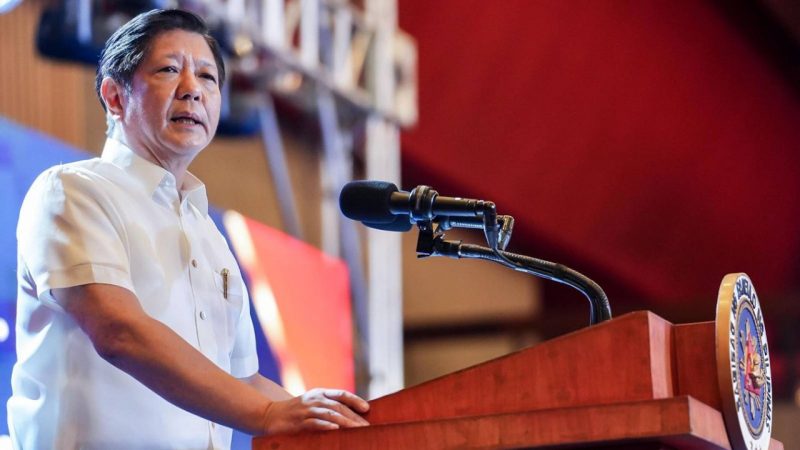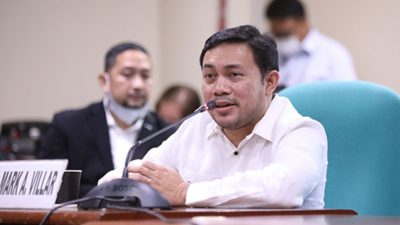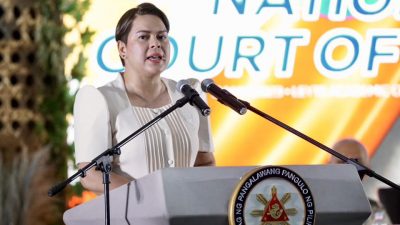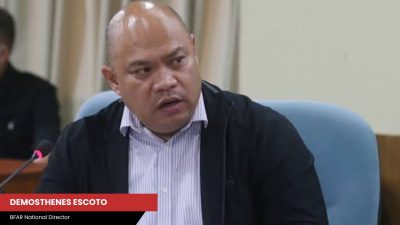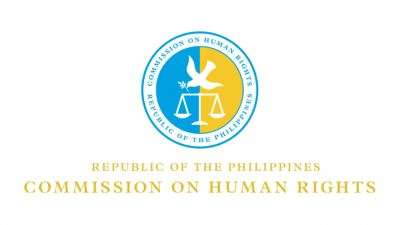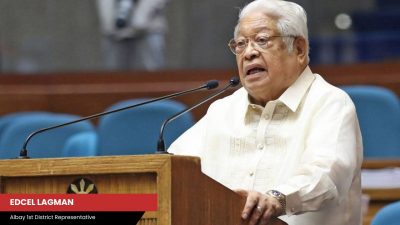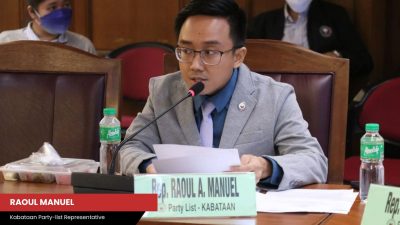MANILA — President Ferdinand Marcos Jr. declared on Thursday that the Philippines has taken its initial stride towards adopting a federal model of governance, a move intended to enhance the stability of the nation’s political structure.
Speaking during the swearing-in ceremony of new members of his political party, the Partido Federal ng Pilipinas (PFP), held at Malacañang, the President articulated that the apparent shift towards federalism would continue by decentralizing power centers to various regions of the country.
Elaborating on this point, Marcos conveyed, “The concept is straightforward. It stems from the simple notion that the durability of a political framework is considerably more robust when multiple power centers are in play. If power is exclusively concentrated in Manila, then any collapse there would lead to the downfall of the entire Philippines.”
“However, by allocating power centers to local governments, districts, and entities functioning at the grassroots level, and consequently disseminating these power hubs across numerous locations, we create a more resilient political structure and cultivate a more stable political environment,” he added.
Marcos further emphasized the significance of decision-making occurring at the lowest feasible level. He advocated for governors and congressmen to be entrusted with decision-making authority, given their familiarity with the realities on the ground.
“The concept we are discussing here is federalism, and what we are beginning to implement—though not explicitly named as such—is genuinely about vesting discretion, power, and function at the most grassroots level feasible. We are thus embarking on the initial phase of transitioning the Philippines towards a federal government, in all but name,” he remarked.
He underscored the pivotal principle guiding these efforts, which is federalism. Marcos stated, “Our endeavors, in all but name, are genuinely about delegating discretion, power, and function as much as possible to the lowest attainable level.”
The Philippines currently operates under a unitary system of governance, with Manila as the central locus of authority.
In contrast, a federal structure allocates authority between the central government and local state governments. This framework allows individual states to formulate their own legislation, manage finances, design development strategies, oversee health and education, and spearhead infrastructure projects.
“By allocating power centers to local governments, districts, and entities operating at the local level, and thereby distributing these power centers extensively, we foster a more robust political framework and cultivate a more stable political milieu,” Marcos reiterated.
Federalism gained prominence in 2016 when Rodrigo Duterte, then the mayor of Davao City, championed it as a key campaign pledge. However, Duterte eventually abandoned the idea several years later.
In contrast to Duterte’s unequivocal endorsement of federalism during his 2016 presidential campaign, Marcos displayed a more measured stance, even though he ran in the 2022 elections under a pro-federalism party.
In January of the preceding year, Marcos voiced his belief that a federal system is suitable for the Philippines, but he acknowledged that amending the 1987 Constitution to facilitate this shift might pose challenges.
The subsequent month, he indicated that Charter change was not among his immediate priorities, notwithstanding certain legislators’ push to revise the Constitution in order to ease perceived “restrictive” economic provisions.
Marcos asserted that the goals of those seeking constitutional amendments to encourage foreign investments could be achieved without altering the fundamental law.
“We can attain our objectives while adhering to the current constitutional framework as it stands,” the President asserted.
Every administration after President Corazon Aquino has proposed changes to the Constitution, including a shift to a parliamentary system of governance. Yet, these proposals have encountered resistance, often stemming from suspicions that government officials sought to prolong their stay in power. (ai/mnm)

